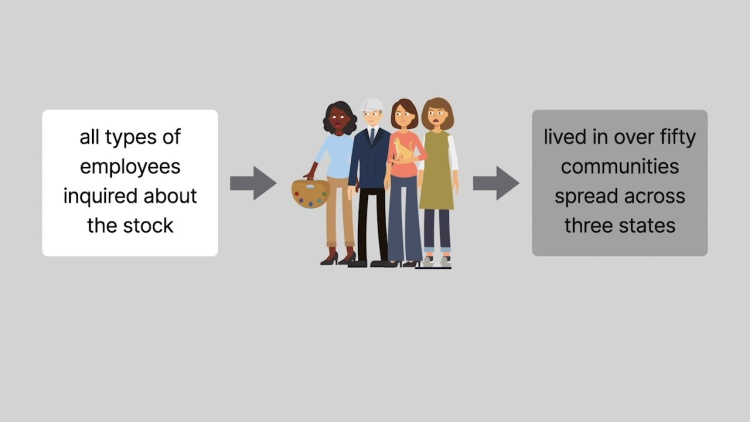Securities and Exchange Commission v. Ralston Purina Co.
United States Supreme Court
346 U.S. 119 (1953)
- Written by Angela Patrick, JD
Facts
Ralston Purina Co. (defendant) was an animal-feed and cereal manufacturer. Over a four-year period, Ralston Purina sold nearly $2 million worth of company stock to its employees. Ralston Purina did not solicit or openly offer to sell its stock to all employees. Ralston Purina’s policy was to sell the stock only to employees who took the initiative and asked Ralston Purina how to buy it. Further, Ralston Purina’s supervisors typically notified only key employees that purchasing stock was an option. Ralston Purina defined key employees as any employees who were eligible for a promotion, were especially influential to other employees, were ambitious, carried some special responsibility, or were sympathetic to management. All types of employees from multiple states purchased the stock, including artists, foremen, veterinarians, and stock clerks. These employees were not all sophisticated investors. Some employees were low-income workers who were unfamiliar with the nuances of investment transactions. The Securities Act of 1933 required that Ralston Purina register any security sold as part of a public offering. However, the act contained an exemption for private offerings. Ralston Purina considered the employee sales to be private offerings and did not register the securities. The Securities and Exchange Commission (SEC) (plaintiff) sued Ralston Purina, contending that the sales were not private offerings and that the company was required to register the securities. Ralston Purina conceded that a stock offering to all its employees would be a public sale requiring registration. However, Ralston Purina argued that these stock sales were exempt private sales because the securities were sold only to certain key employees who had shown an interest in the company. The district court ruled for Ralston Purina, finding that the sales were an exempt private offering. The United States Court of Appeals for the Eighth Circuit affirmed. The United States Supreme Court granted certiorari to define the scope of the Securities Act’s private-offering exemption.
Rule of Law
Issue
Holding and Reasoning (Clark, J.)
What to do next…
Here's why 907,000 law students have relied on our case briefs:
- Written by law professors and practitioners, not other law students. 47,100 briefs, keyed to 996 casebooks. Top-notch customer support.
- The right amount of information, includes the facts, issues, rule of law, holding and reasoning, and any concurrences and dissents.
- Access in your classes, works on your mobile and tablet. Massive library of related video lessons and high quality multiple-choice questions.
- Easy to use, uniform format for every case brief. Written in plain English, not in legalese. Our briefs summarize and simplify; they don’t just repeat the court’s language.





